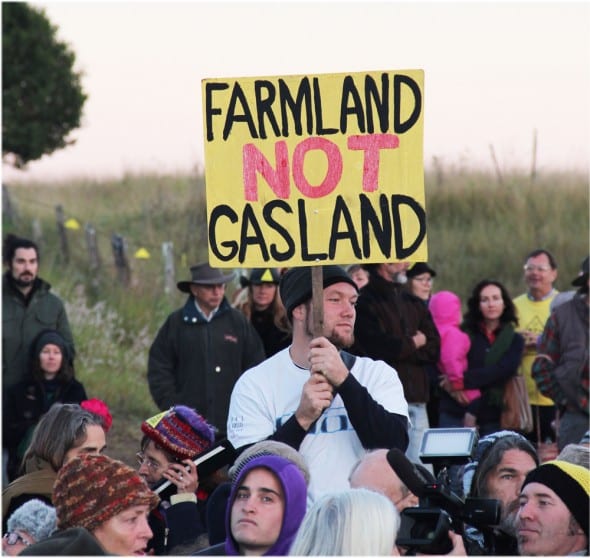Victoria will become the first Australian state to permanently ban unconventional onshore gas mining after the Opposition agreed to support the legislation introduced into Parliament by the Andrews government late last year.
Victoria’s Coalition confirmed on Wednesday that the legislation to ban fracking – and to extend a moratorium on conventional gas mining – would pass through Parliament with its support; a move that puts the party in lock-step with public sentiment on the issue (polling shows only 9.7 per cent of Victorians are opposed to the ban), and notably out of step with its federal counterpart.

Liberal party sources cited in the Murdoch papers said the Coalition had decided not to fight Labor on the matter because it was in line with a position taken by Opposition Leader Matthew Guy and Nationals leader Peter Walsh in 2015.
The issue is a particularly tricky one for National Party members, whose major constituency – Australian farmers – is one of the biggest opponents to CSG mining, due to the risks it poses to prime farm land and water resources.
“I would want to make sure that you’re not completely devastating a whole agricultural industry on the sake of potentially exploring for gas in areas that we traditionally haven’t been before,” said Victorian Farmers Federation President David Jochinke.
The timing of the bill’s passage, however, is not great for the federal Coalition, which has recently laid down the gauntlet on energy policy, lambasting state governments over their ambitious renewable energy targets, and backing both gas and new coal as key ingredients of Australia’s “clean” energy future.
“They have locked up all the gas,” Prime Minister Malcolm Turnbull fumed on Wednesday in response to the news. “The Victorian government will not even allow the exploration of onshore conventional gas in Victoria.
“You have massive gas resources in Victoria and you have people crying out for the energy.”
Federal energy minister Josh Frydenberg said that the Victorian government’s heavy-handed approach was inappropriate.
“More gas means more jobs and more investment,” he said. “Rather than pursuing statewide moratoriums and bans on conventional and unconventional gas exploration, the best way forward is a case-by-case approach that allows you to take into account relevant environmental and economic factors.”
Not surprisingly, some energy industry representatives were also displeased by the outcome.
Australian Energy Council chief executive Matthew Warren – who in an op-ed for the AFR on Wednesday said “put simply, you cannot finance coal” – said the gas ban pandered to populist sentiment and was bad news for the integration of renewables.
“This change is disappointing and will mean bad news for energy prices and gas supply into the future,” he said. “Shorting gas supply will make it harder to deliver the state government’s renewable energy ambitions.’’
Australian Petroleum Production & Exploration Association chief executive Malcolm Roberts said the bill was an overreaction.
“There has been a fear campaign around fracking and the activists have been very successful in creating uncertainty in people’s minds,” he said. “The politicians have responded to that by overreacting.’’
But state Labor’s minister for resources, Wade Noonan, says his government has done the right thing.
“Victorians have resoundingly rejected fracking, and we’re putting an end to it,” he said. “It threatens the reputation of our vital agricultural sector and puts the state’s world-class food producers and regional economies at risk.”
Meanwhile, Victorian energy and climate minister, Lily D’Ambrosio, is keen to point out that her opposite number have not completely abandoned the federal party line, having chosen to vote against the Andrew’s government’s bill proposing a fairer feed-in tariff.
Pleased to report that VicGov’s fairer solar feed in tariff bill has now been passed by parliament (coalition voted against it)
— Lily D’Ambrosio MP (@LilyDAmbrosioMP) February 7, 2017










